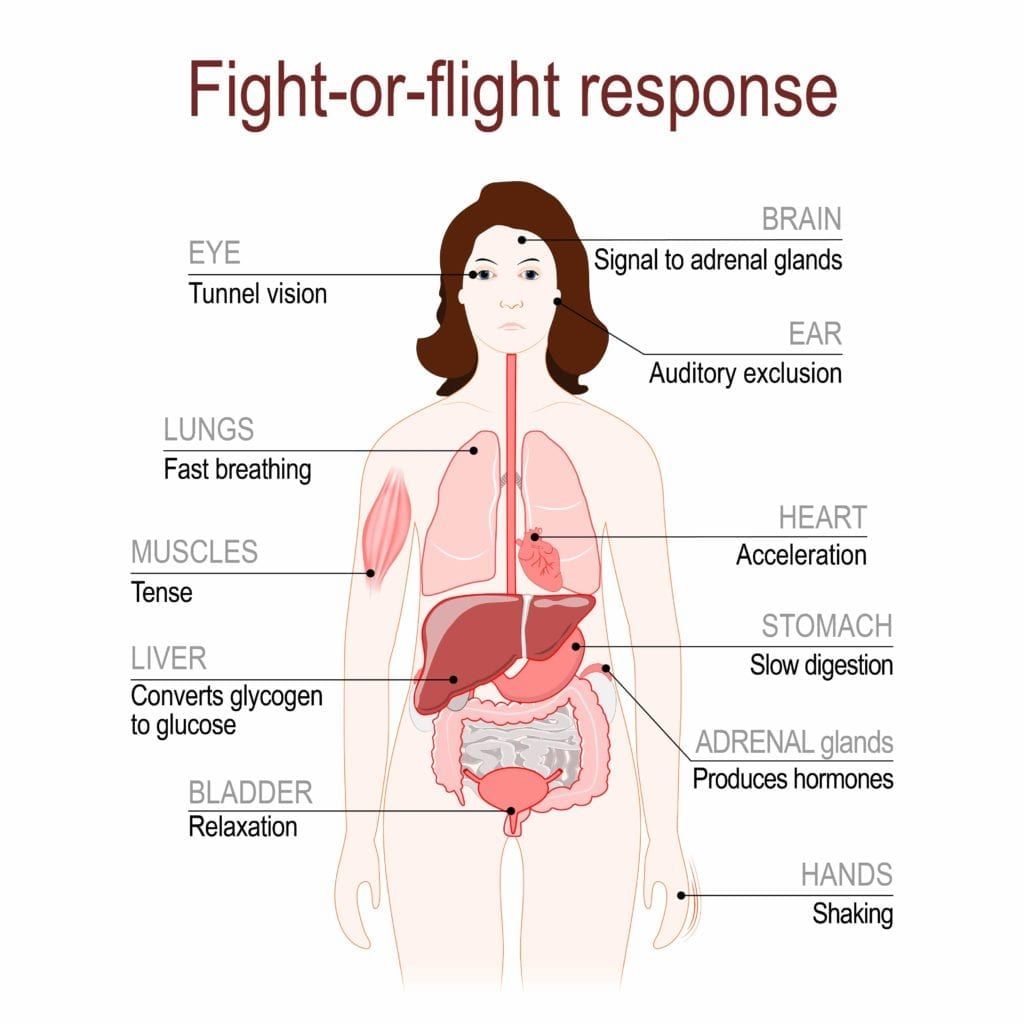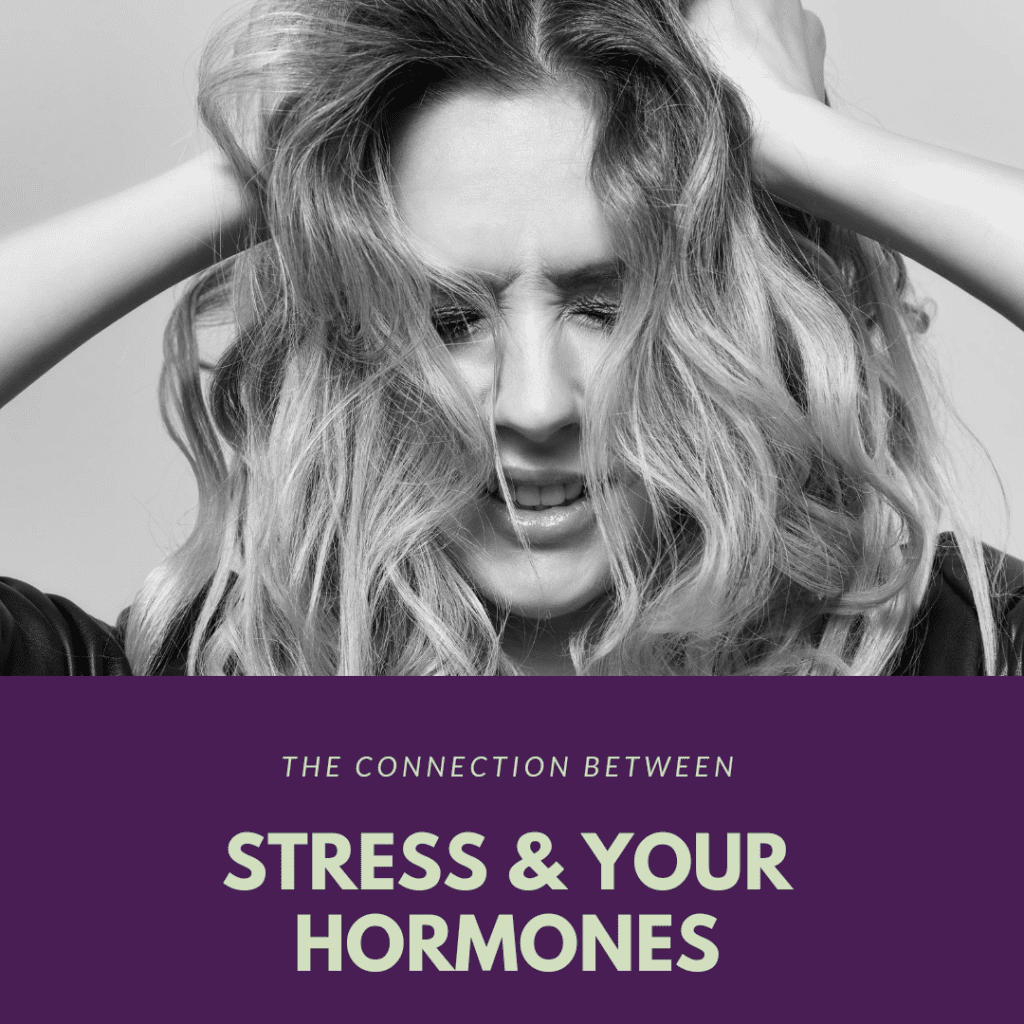Stress is a part of our everyday life and we have all experienced stress at one time or another. It is also very likely that we’ve been told that stress can affect us in many different ways. While some of these effects can be beneficial, such as additional energy for completing tasks, other effects like stomachaches and headaches are not as desirable. Not only that, long term stress can cause more serious changes to the body that can have negative effects.
One negative change to the body that long term stress causes is a hormonal imbalance. When you experience stress, the adrenal glands above your kidneys produce the stress hormone known as cortisol. With short-term stress, the extra cortisol levels will give you the needed boost to address the situation. Afterwards, your body recovers and you continue on without permanent changes. However, in the case of ongoing stress, your adrenal glands will get tired and start producing less and less cortisol. The end result is usually fatigue.
Until your adrenal glands have tired out, however, there will be an increase in cortisol circulating around your body. High cortisol levels cause two main things to happen in the body. First, it initiates your body’s fight or flight response by increasing your heart rate and level of alertness. Second, it limits functions that are not essential for fight or flight.
Additionally, cortisol is also used by the body for several important functions such as:

- Reducing inflammation
- Boosts energy levels
- Regulates blood pressure
- Increases blood sugar
- Manages how the body uses carbs, fats, and proteins
- Controls the sleep/wake cycle
Unfortunately, these functions are also affected by higher levels of cortisone. In fact, high levels of cortisone can actually cause some of these functions to temporarily cease. This can cause a number of health issues such as anxiety, depression, headaches, heart disease, memory and concentration problems, digestion problems, trouble sleeping, and weight gain.
Not only that, but cortisol and estrogen have a complicated relationship. In some cases, high cortisol levels can lower estrogen levels. This causes a variety of female hormone imbalance symptoms such as hot flashes, weight gain, night sweats, sleep problems, and mood swings. At the same time, circulating estrogen may also increase the circulation of cortisol in your blood. Contraceptive medications, pregnancy, and estrogen therapy have all been associated with increasing both estrogen and cortisol levels.
Simply stated, too much or too little of any hormone will eventually lead to a hormone imbalance since the other hormones will adjust their levels accordingly. In women, hormonal imbalances have specific symptoms such as:
- Heavy or frequent periods
- Missed or stopped periods
- Weight gain
- Acne (specifically on the face, chest, or upper back)
- Excessive hair growth on the face or chin
- Skin tags
- Hair loss or thinning
- Darkening of the skin (specifically along neck creases, in the groin, or underneath the breasts)
- Vaginal dryness or atrophy
- Pain during sex
- Night sweats
While stress is a common cause of hormonal balances, it is not the only cause. Unfortunately, there are many medical conditions that can cause a hormonal imbalance. In women specifically, there are also unique causes such as birth control pills, pregnancy, breastfeeding, ovarian insufficiency, polycystic ovarian syndrome, premature menopause, and menopause. Therefore, if you believe you may have a hormonal imbalance, it is important to schedule an appointment with your doctor. A blood test is usually obtained to measure the amount of certain hormones in the blood, however further testing may be used to determine the specific cause of any imbalances.

Dr. Geoffrey Zann is a Certified Robotic Da Vinci Surgeon, Board-certified by the American College of Obstetricians and Gynecologists, and a Diplomat of the American Board Obstetrics of Gynecology. He has been a member of the American Society for Colposcopy and Cervical Pathology, American Association of Gynecologic Laparoscopists, and the Hugh R. K. Barber Obstetric and Gynecologic Society.
